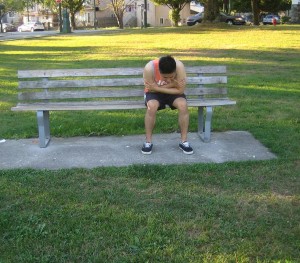Motion sickness is defined as disruption of the inner ear. The condition arises if the brain receives contradictory messages about motion and position in space of the body.
The contradictory messages are transmitted from the inner ear, skin receptors, eyes as well as the muscle and joint sensors. An individual experiences motion sickness since the eyes could not see the turbulence that moves the plane from side to side. The condition can occur with any mode of travel such as via plane, ship, bus, train or even a car.
What are the signs of motion sickness?
The signs of motion sickness include:
- Sweating
- Dizziness
- Nausea
The symptoms might manifest abruptly and progresses from not feeling well or even cold sweats, vomiting as well as dizziness. - Vomiting
The symptoms might manifest abruptly and progresses from not feeling well or even cold sweats, vomiting as well as dizziness.
The condition is prevalent among women and children between 2-12 years of age. Those who experience migraine headaches are also susceptible to motion sickness.
Preventive measures
If an individual experiences motion sickness or prone to experience one, the following must be considered:
- When travelling on a ship, select a cabin in the middle part of the ship or near the waterline. When on board, move up the deck and focus on the horizon.
- During air travel, ask for a window seat and look out the window, preferably a seat over the front edge of the wing. In addition, position the air vent to flow cool air on the face.
- When travelling via a train, it is best to face forward and sit near the window.
- In a car, sit in the front seat and look at the scenery in the distance. In some cases, driving the vehicle is an immediate remedy.
Other measures to prevent or lessen motion sickness include:
- Avoid reading in a moving vehicle since it can make motion sickness worse.
- Adequate rest before travelling
- Avoid acidic or greasy foods in the hours before travelling. These foods are hard to digest. If coffee was taken, it can speed up dehydration. Ideal choices of food to eat include cereals, breads, milk, grains, apple juice, water, bananas or apples.
- Increase the intake of water to ensure that the mouth is moist, and urine appears light in appearance.
- Avoid intake of excessive amounts of alcohol before travelling.
- If queasiness arises, stand up and look over the horizon.
- Avoid smoking or those who smoke.
- Dry crackers can be eaten to ease a queasy stomach.
- Utilize the seat head rest by leaning the head against it to minimize head motions.

